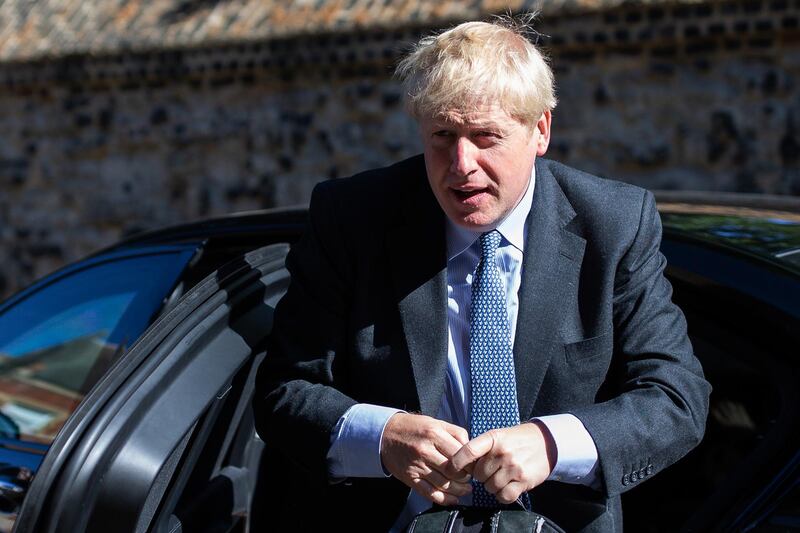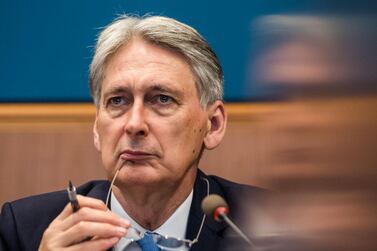The British pound fell further against the dollar on concerns that the UK will crash out of the European Union without a deal. Sterling was trading at $1.2414at 5.26pm UAE time on Wednesday, falling as much as .83 per cent since Monday and hitting a 27-month low..
The comments made by Boris Johnson, who is likely to become the next prime minister of Britain succeeding Theresa May, contributed to the slump of the currency. Mr Johnson has been ratcheting up support for a no-deal Brexit along with Jeremy Hunt, the other contender for the top post.
“UK Markets have been dominated by fresh Brexit fears today, which saw the pound sterling hitting its lowest since April 2017,” said Mihir Kapadia, the chief executive of Sun Global Investments.
“This was as a result of statements made from both Tory leadership candidates, Jeremy Hunt and Boris Johnson, who both pledged to abandon the Northern Ireland backstop proposal, which has led to fears amongst investors that a no-deal Brexit is more likely,” he added.
The statements made Monday night led to a selloff on Tuesday and the pound has since struggled to claw back.
Although better-than-expected wage growth was reported, political issues have come to the forefront again with the Brexit deadline now just over three months away.
“The pound has been the biggest loser against the greenback among the G10. Cable fell 0.83 per cent since Monday, and that, despite the encouraging economic data released in London yesterday,” said Ipek Ozkardeskaya, a senior market analyst at London Capital Group in a note.
UK’s unemployment rate stands at 3.8 per cent, the lowest since 1975, and British employees’ salaries grow at the highest pace since the subprime crisis.
The average weekly earnings grew 3.4 per cent in three months to May as against 3.1 per cent reported a month earlier. The earnings’ growth improved up to 3.5 per cent at the beginning of this year.
Business magnate and Virgin boss Richard Branson also warned last Thursday that the pound could “collapse to parity [one for one] with the dollar if there is a hard Brexit”, Reuters reported.
“The pound is at new lows but we see still strong fundamental reasons for the negative momentum to continue,” MUFG strategists told clients, noting that Brexit was taking a heavy toll already on the economy.
“The flow of economic data is also now pointing to the potential of recession in the UK.”







